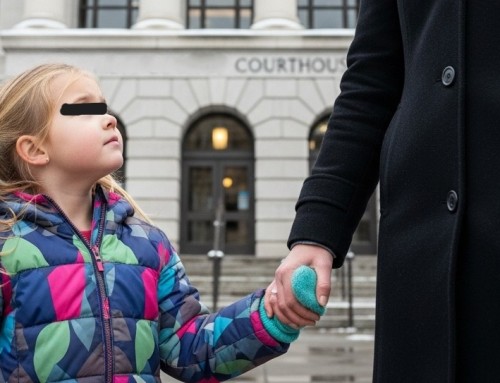A Guide to Modifying Child Custody Agreements in Idaho
Let’s be honest—life doesn’t stay still. It shifts. It surprises. And sometimes, it changes in ways that the original child custody agreement just can’t keep up with.
Maybe you got a new job. Maybe your child’s needs are different than they were a few years ago. Or maybe the current plan just isn’t working the way everyone hoped it would.
Whatever the reason, if you’re considering modifying your custody agreement in Idaho, you’re not alone—and you’re not without options.
Let’s walk through what it takes to modify custody here in Idaho: when it makes sense, what the law says, and how you can give your child the best possible outcome in the process.
First, Know This: It’s Okay to Revisit the Plan
Parents often feel a little uneasy about revisiting their custody agreement. Some even feel guilty, as though changing it means they’re being difficult or rocking the boat.
But here’s the truth: wanting to change a parenting plan doesn’t mean you failed. It means you’re paying attention. It means you’re responsive. And that’s what good parenting looks like.
When your child’s needs change—or your life circumstances shift—it’s absolutely appropriate to reassess the plan. Custody orders aren’t written in stone. Idaho courts recognize that what works for a toddler may not work for a teenager, and what worked two years ago may be impractical now.
So if you’re finding yourself wondering, “Is it time to update our agreement?”—you’re already showing that your child’s wellbeing comes first. That’s a great place to begin.
When Can a Custody Agreement Be Changed in Idaho?
The Idaho courts don’t allow custody agreements to be modified just because one parent is unhappy with the current setup. There needs to be a material and substantial change in circumstances—a legal term that boils down to this: Has something changed in a meaningful way since the last order?
According to Idaho Code § 32-717, the court may modify a custody order “if it finds, upon a showing of facts, that the modification is in the best interest of the child.”
Common “Material Changes” Might Include:
- One parent plans to relocate, affecting parenting time or access.
- A parent’s work schedule has significantly shifted.
- The child has new or changing educational or medical needs.
- There’s concern about safety or a change in home environment.
- One parent’s ability to care for the child has improved—or worsened.
- A teen expresses a strong, thoughtful preference to adjust time with one or both parents.
Now, not every change will qualify. For example, a small change in working hours or disagreements over minor parenting issues usually won’t cut it. The change must impact your child in a meaningful way—enough to warrant a new court order.
The Golden Standard: The Child’s Best Interests
If there’s one phrase to keep in mind, it’s this: the best interests of the child.
That’s the guiding star for Idaho courts. Even if you and your co-parent agree on a proposed change, the judge still has to determine that it serves your child’s wellbeing. If you don’t agree? Then it’s especially important to present your case clearly and thoughtfully.
So, What Do Judges Consider?
Judges in Idaho look at a variety of factors, including:
- The child’s relationship with each parent.
- The stability and continuity of each home environment.
- The child’s emotional, educational, and physical needs.
- Each parent’s ability to meet those needs.
- The child’s ties to home, school, and community.
- Whether there is a history of domestic violence or substance abuse.
- The child’s own preferences (typically if they are 12+ and mature).
It’s not about punishing one parent or rewarding the other. It’s about figuring out what will support the child best moving forward.
Let’s Talk Process: How to Modify a Custody Order
Once you’ve identified that there’s been a substantial change—and you believe a modification is in your child’s best interest—you’ll need to begin a legal process through the court.
Step 1: File a Petition to Modify Custody
You’ll submit this petition in the same county where your original custody order was issued, unless the court has changed jurisdictions.
If both parents agree on the new plan, you can submit a stipulation (mutual agreement), which generally speeds up the process and may avoid a formal hearing.
If you and your co-parent do not agree, the matter may require:
- Mediation (often court-ordered in Idaho custody disputes),
- Gathering documentation (such as school records, schedules, or medical evaluations), and
- Possibly a hearing, where a judge will make the final decision.
You can find more details about the process on our Family Law Services page.
What If the Other Parent Objects?
Disagreements happen. And in custody matters, they can be especially emotional.
But remember: even if your co-parent opposes the change, you still have the right to ask the court to review your situation. Judges are used to navigating conflicting narratives. Your job is to present yours clearly, with the child’s interests at the forefront.
Avoid turning the process into a battle. The more you can keep communication calm and centered around your child, the better. If your child is caught in the middle of a contentious custody case, it can take a toll—emotionally and psychologically. According to the American Psychological Association, parental conflict is one of the most significant predictors of negative outcomes for children.
Working with an experienced family law attorney can help ease the strain, defuse tension, and focus the case on what matters most.
Real-Life Story: When Change Makes Sense
Ben and Sarah divorced when their daughter, Lily, was just two years old. The original custody plan gave Sarah primary custody, with Ben getting every other weekend and a midweek dinner visit.
As Lily grew older, she began expressing a stronger bond with her dad and a desire to spend more time at his house—especially once Ben moved into a home closer to her school. Meanwhile, Sarah had remarried and was expecting a second child, which brought a whole new set of routines and demands.
Rather than argue, they sat down with a mediator. They adjusted the plan to give Ben more weekday parenting time, allowing Lily to sleep over midweek and attend more after-school activities from his house. The court approved the change, recognizing that both homes remained loving, stable, and safe.
Not every story is this cooperative—but it shows what can happen when both parents keep their eyes on the prize: their child’s happiness.
Do You Need a Lawyer for This?
Technically? No, you’re allowed to file a petition on your own. But practically? Having a family law attorney on your side is almost always a wise choice.
Child custody modifications involve legal filings, timelines, evidence, and sometimes court hearings. And the stakes—your child’s day-to-day life—are high.
At Brown Family Law, our team—led by experienced attorney Kimberly Washburn—is committed to supporting Idaho families through transitions like this with compassion and skill. We understand the law, the court process, and most importantly, the emotional dynamics involved in parenting plans.
Let’s Talk—We’re Here When You’re Ready
Thinking about modifying a child custody agreement is never easy. But it can also be the first step toward a better, more balanced life for your child—and for you.
We’re here to listen, to help, and to guide you through the process with care.
Call us today at 208-987-7005, or click here to schedule a consultation. Whether you just have questions or you’re ready to file, we’ll meet you wherever you are—and walk with you from there.








